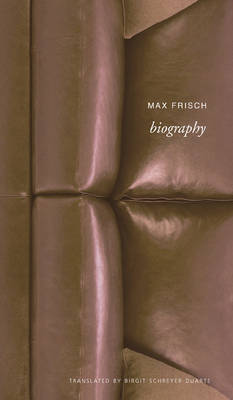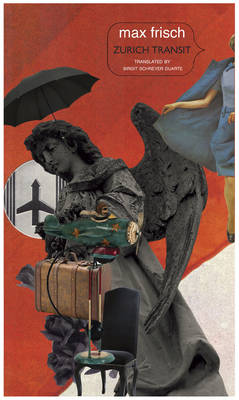The German List - (Seagull Titles CHUP)
2 total works
In this play by Swiss playwright and novelist Max Frisch, a middle-aged behavioral researcher named Kurmann is given the opportunity to start his life over at any point he chooses and change his decisions and actions in matters both serious and mundane. He could save his marriage, become politically active, take better care of his health, or even change the color of his living-room furniture. Despite his intention to apply the wisdom he has acquired with age, Kurmann finds himself inexorably trapped in the same decisions. Ultimately proving fatal, Kurmann's life-game interrogates how much of our own path is shaped by seemingly random factors and how much is in fact predetermined by our own limited, conditioned selves. The play's central idea - that our lives are nothing but a self-conscious play with imaginary identities - is brilliantly captured in Biography's dramaturgical form, which sets up a theater rehearsal as the metaphor for the endless possibilities and variables of the game of life.
Frisch's own revised, dramatically heightened version of his play celebrates not only the theater as a form of self-expression but also the human condition in all its potential and limitations as it showcases both comic and tragic outcomes that define all our lives.
Frisch's own revised, dramatically heightened version of his play celebrates not only the theater as a form of self-expression but also the human condition in all its potential and limitations as it showcases both comic and tragic outcomes that define all our lives.
This screenplay by Swiss playwright and novelist Max Frisch was developed from an episode in his 1964 novel "Gantenbein", or "A Wilderness of Mirrors". At the center of both works is Theo Ehrismann, a man who cannot seem to change his life no matter how many times he resolves to do so. Chance comes to Theo one day upon returning from a trip abroad - he arrives home to read his own obituary in the paper. He shows up just in time for his own funeral and observes the attending mourners, yet he is not able to reveal himself to them, and especially not to his wife. 'How does one say that he is alive?' wonders Theo. Life, as Frisch said, 'is the sum of events that happen by chance, and it always could as well have turned out differently; there is not a single action or omission that does not allow for variables in the future'. "Zurich Transit" presents Frisch at the height of his dramatic powers and exemplifies his ardent belief in a dramaturgy of coincidence rather than causality.

